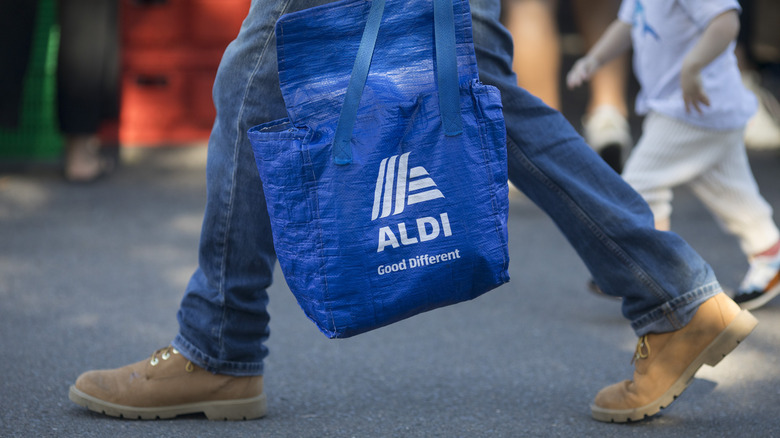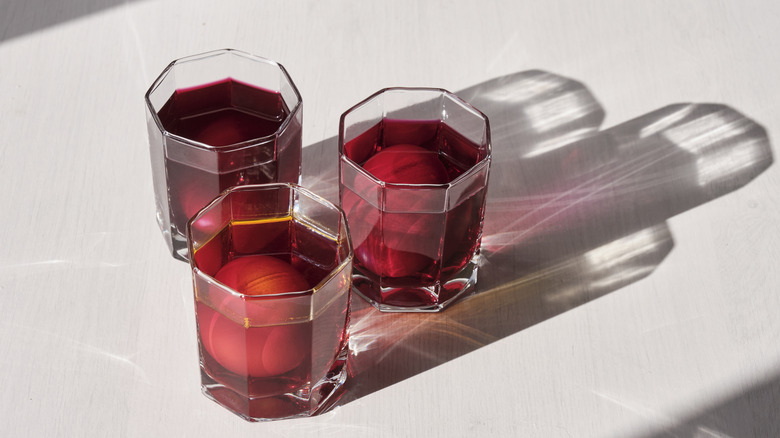Aldi Brands Don't Actually Contain A Controversial Food Dye
Aldi is celebrated for its consistently low prices and food deals. In fact, Aldi holds the title for the cheapest grocery store in America outdoing big-name competitors like Walmart and Trader Joe's. Fans of the affordable grocery store enjoy the Aldi experience not just for its low price points, but also for its eccentric and expansive repertoire of goods. Aldi offers customers a wide range of frozen meals, uniquely-crafted snacks, fresh produce, meat, fish, and even some seasonal items like its spring macarons and sparkling watermelon juice. Whatever your diet may be, Aldi stocks its shelves with options for everyone.
With plenty to celebrate already, Aldi fans on TikTok are going viral for discovering yet another reason to shop at the discount grocery store. As it turns out, all of Aldi's products are free from artificial food dyes, including the most controversial dye of them all — red dye. Although Aldi does carry some big-name brands that include dyes like Takis and Doritos, Aldi's in-house brands use plant-based ingredients to color its products.
Why red dye is so controversial
In 1990, the FDA linked Red dye 3 to thyroid cancer in animals and effectively banned its use in cosmetic products like blush or lipstick. Despite its restrictions on makeup, soap, and lotion, Red dye 3 is still allowed in our food. One study conducted by the California Office of Environmental Health Hazard Assessment linked consumption of Red 3 to behavioral and attention deficiency issues in children. Red dye 40, another chemical compound that gives food products a bright red hue, contains benzene — a known carcinogen.
It's not just red dyes that have raised eyebrows over public health concerns. A study conducted by the International Journal of Occupation and Environmental Health found that numerous other chemical food dyes including Yellow 5, Blue 1, and Orange B are also linked to various health concerns.
Instead of chemical food dyes, Aldi products are colored with plant-based ingredients. Common sources of plant-based "dyes" included beets and hibiscus for red, turmeric powder for yellow, red cabbage for blue, and matcha powder for green.
@thestellawilliams #stitch with @tgarcia1021 #aldi #foodscience
If you're looking for affordable, dye-free food products, consider getting your next grocery haul from Aldi.

